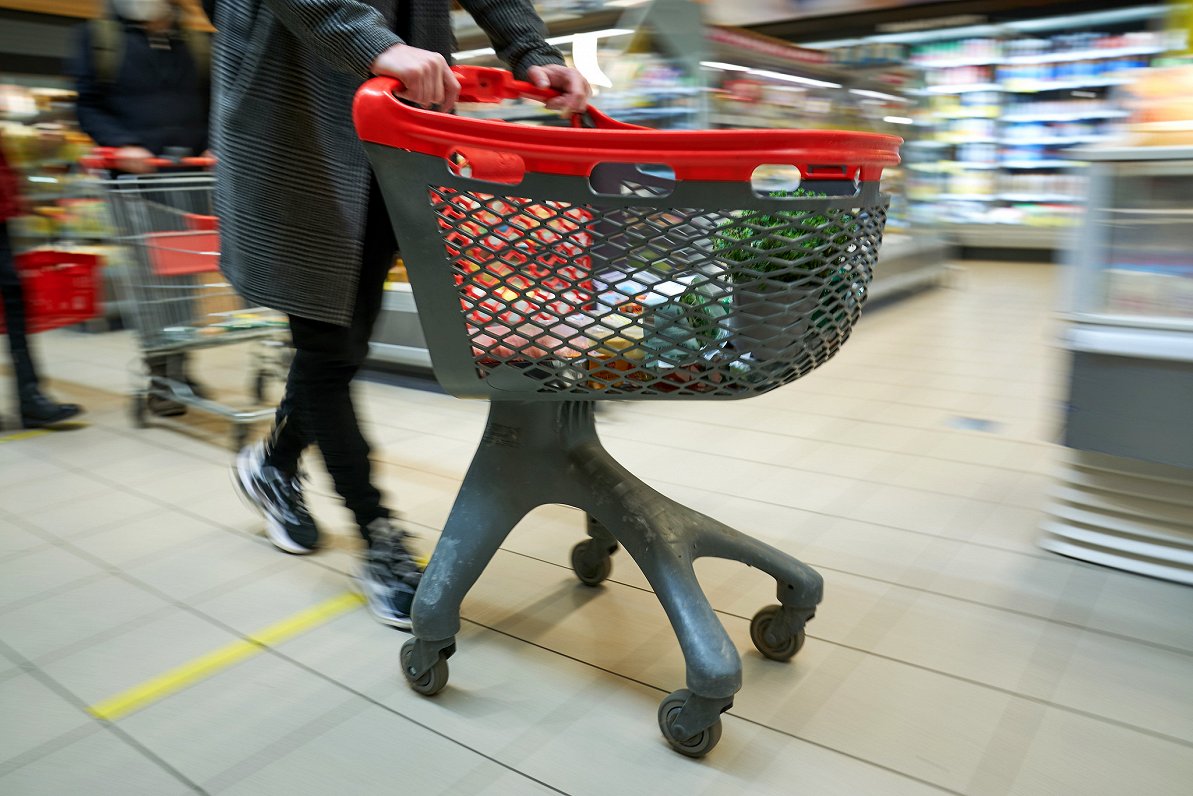The fact that everything is ever more expensive has become one of the most debated topics. Many admit there are also concerns about the upcoming heating season when heat bills will rise.
Speaking to people in Cēsis, many said saving and building stocks is difficult, even impossible, and it is now becoming increasingly important to assess their purchases.
“Tough, difficult. I go to the shop and what do they have for €10? There's nothing. Tomatoes, cabbage, I have no garden myself, a bit of the cheap meat, chicken, a banana."
“I think the word 'sale' is very attractive at all times. [I look at sales] quite a lot. Because they are good products, only for a shorter time.”
“We're starting to watch. We're driving more to shops where there are really discounts [..] For example, I don't buy oil anymore at the first store I see. We look, if there is a sale, then take more of that oil, then we know we have it."
“I thought now, I was in the shop, and I thought I won't buy this, I won't buy that, I can't buy this, I'm not very frugal but now I have started to think I should be.”
Many food products are more expensive in Latvia than in Estonia, said Margarita Rāliste, a resident of Tallinn who has come to Cēsis to see her mother. “When shopping here in Latvia, I feel it's much more expensive. For example, I can buy the same buckwheat, rice, oats much cheaper in Estonia than here. And the same porridge I make for kids in the morning, here it costs €3.20, [in Estonia] it's €1.80.”
The shop network's “Top” spokeswoman, Ilze Priedīte, said the change in shoppers' habits had already been seen in the midst of the pandemic and was maintained afterward. People chose to cook more at home, and even now, after the restrictions have been lifted, the trend is continuing.
“If we look at the specific categories that have grown in the last 12 months, they are non-alcoholic beverages, dry breakfast products, fast-cooking soups, and there are also categories that see a drop in [prices] – butter and margarine,” Priedīte said.
“Buyers are increasingly choosing exactly sales products, we are more and more likely to see that the customer no longer chooses the products of a specific brand, and now the product itself is more crucial at the lowest possible price,” she said.
Both the rise in energy prices and the war in Ukraine have led to changes on store shelves. The assortment has been adjusted based on the availability of goods, as well as the number of sale goods has been increased.
Maxima Latvija spokeswoman Laura Bagātā said that purchases have become more thought-out and that this year's study, focusing on changing shopping habits in relation to last year and half-year, shows the price as the main aspect.
"We are also trying to take this into account in shop arrangements, such as these products and offers, which are more favorable, [..] we are trying to make these placements so that it is easy for people to see these offers," Bagātā said.
Henriks Danusēvičs, president of the Latvian Traders Association, said that traders need to cut the assortment because producers bring more goods and demand higher minimum quantities.
“I used to buy 20 kilograms of sausage a day from five suppliers by four kilograms, for example, but if I'm asked to take eight kilograms now, I can only take from two to three suppliers, so I have a smaller assortment. We are also buying fewer, so to say, better quality products, because there is no certainty that they will sell out,” Danusēvičs said.






























